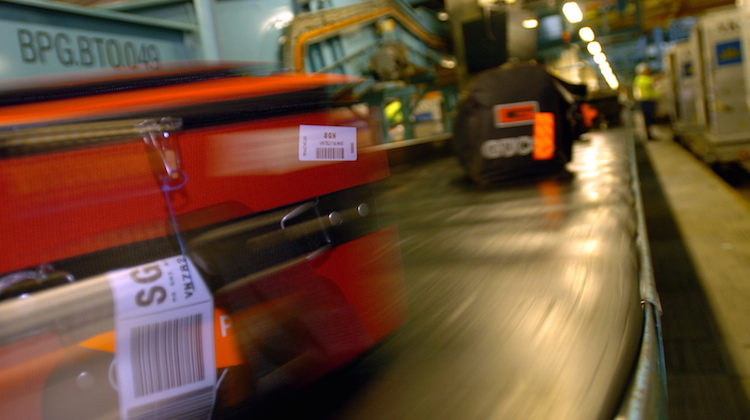
Checkin luggage involving a connecting itinerary are about 10 times more likely to be lost or “mishandled” than bags checked in directly, new figures suggest.
The findings are the result of a year-long look at international passengers’ bags departing from Brisbane, Melbourne, Perth and Sydney airports commissioned by the Board of Airline Representatives of Australia (BARA) and conducted by Unisys Australia.
The data for the 2016/17 financial year, which covered about 60 per cent of all departing international flights, showed 46 per cent of mishandled bags were transferred from a domestic or international flight, while 54 per cent were checked in directly at the international terminal.
However, the BARA report noted just eight per cent of bags covered in the analysis were transferred, with 92 per cent checked in directly.

“The rate of mishandled transfer bags is about 10 times that of direct checkin bags,” BARA said in the September edition of its Airline Views newsletter.
“Transfer bags are more complex, especially when across carriers and ground handlers. It requires sound procedures, infrastructure services and coordination between airlines, ground handlers and the airport operator.”
The analysis also showed the rate of mishandled bags was highest during the busy travel period in December-January, suggesting that “based on current systems and operating procedures, outbound baggage performance may deteriorate with ongoing growth in bag volumes”.
The Australian figures were in line with SITA’s The Baggage Report 2017, BARA said, which found that 47 per cent of mishandled bags around the world were transfer bags.
The cost to international airlines of the roughly 85,000 mishandled bags in Australia during 2016/17 cost international airlines was about $25 million, BARA said.

However, it noted airport operators did not suffer such costs and “do not have the same financial incentive to deliver better baggage outcomes in partnership with airlines and ground handlers” as a rise in the rate of mishandled bags made no dent in airport annual profits.
BARA, which represents represents 32 international airlines that fly into and out of Australia covering about 90 per cent of all international passenger services, argued airports’ efforts to support international airline baggage outcomes were “largely discretionary”.
“A move to more commercially balanced aeronautical service agreements would see the financial incentives for airport operators more in line with those of airlines and other providers in seeking improved baggage outcomes,” BARA said.
BARA said projects that would help baggage outcomes for international passengers included equal priority for baggage makeup space, improved maintenance of baggage systems and tracking bags across handover points.




